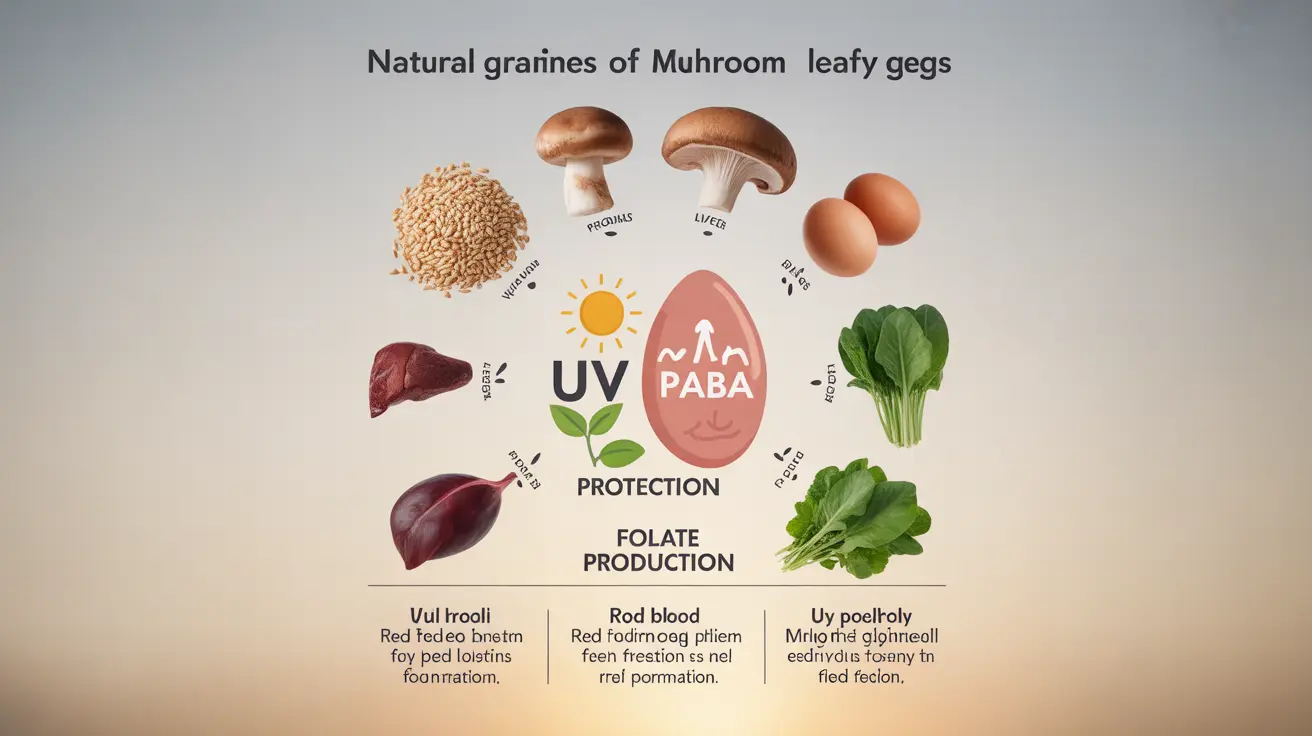PABA, or para-aminobenzoic acid, is a compound that has historically been considered part of the vitamin B complex. While it gained attention for its potential benefits in skin health and UV protection, modern research has clarified its role and importance in human health. Understanding PABA's functions, benefits, and potential risks is crucial for making informed decisions about its use in supplements and skincare products.
This comprehensive guide explores what PABA is, its relationship to human health, and its applications in both dietary supplements and topical products. We'll examine the scientific evidence behind its claimed benefits and discuss important safety considerations.
What is PABA and Its Basic Functions
PABA is an organic compound that occurs naturally in certain foods and can be synthesized by beneficial bacteria in the human gut. While it was once labeled as vitamin B10, scientists now understand that it's not actually an essential vitamin for humans. Instead, it's considered a non-essential compound that plays various roles in biological processes.
The compound's primary functions include:
- Acting as a precursor for folate production by intestinal bacteria
- Contributing to the formation of red blood cells
- Supporting protein metabolism
- Providing some natural UV protection when used topically
PABA in Dietary Supplements
PABA supplements have been marketed for various health benefits, particularly related to skin and hair health. Common supplement forms include tablets, capsules, and topical preparations. While some people take PABA supplements, it's important to note that there's limited scientific evidence supporting many of the claimed benefits.
Claimed Benefits of PABA Supplements
Proponents of PABA supplementation suggest it may help with:
- Protecting skin from UV damage
- Supporting hair pigmentation
- Improving skin conditions
- Enhancing fertility
- Supporting red blood cell formation
Natural Sources of PABA
PABA can be found naturally in various food sources, though modern diets may contain varying amounts. Key dietary sources include:
- Whole grains
- Mushrooms
- Liver
- Eggs
- Dairy products
- Molasses
- Spinach and other leafy greens
Safety and Side Effects
While PABA is generally considered safe when consumed in food amounts, supplements and high-dose applications can pose risks. Understanding potential side effects is crucial for safe use.
Common Side Effects
Users should be aware of possible adverse reactions, including:
- Skin rashes and allergic reactions
- Nausea and digestive issues
- Liver problems with high doses
- Interference with certain medications
- Potential photosensitivity
PABA in Skincare Products
PABA gained prominence as a sunscreen ingredient but has largely been replaced by newer alternatives due to concerns about allergic reactions and stability. Modern sunscreens typically use "PABA-free" as a selling point, reflecting this shift in formulation preferences.
Frequently Asked Questions
What is PABA and is it an essential vitamin for humans? PABA is a compound once thought to be vitamin B10, but it's now known not to be an essential vitamin. Humans can obtain adequate amounts through diet and gut bacteria production.
What are the common uses and claimed benefits of PABA supplements for skin and hair health? PABA supplements are claimed to help protect skin from UV damage, support hair pigmentation, and improve overall skin health. However, scientific evidence for these benefits is limited.
What are the potential side effects and risks of taking PABA supplements, especially in high doses? High-dose PABA supplements can cause allergic reactions, nausea, skin rashes, liver problems, and may interact with medications. It's important to consult healthcare providers before starting supplementation.
Which foods naturally contain PABA and can diet provide enough for health needs? PABA is found in whole grains, mushrooms, liver, eggs, dairy, and leafy greens. A balanced diet typically provides sufficient amounts for health needs.
Is it safe to use skincare products or sunscreens containing PABA, and what allergic reactions should I watch for? While PABA-containing skincare products are generally safe for most people, some may experience allergic reactions including rashes, itching, or skin irritation. Many modern products are now PABA-free due to these concerns.




